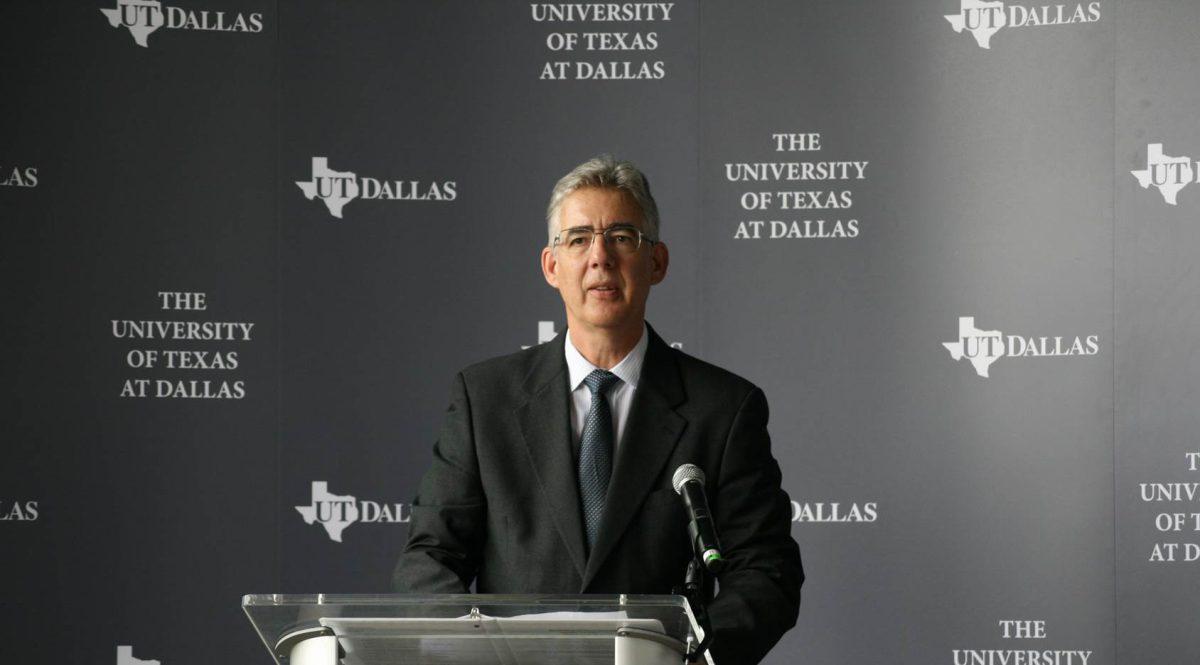This August marks the last month of Mark Spong as the dean of the Erik Jonsson School of Engineering and Computer Science. He will step down and become a regular faculty member after taking the upcoming school year off. In an interview with The Mercury, Spong spoke about what the Jonsson School has accomplished and what the future will look like.
Q: Why are you stepping down from the dean position?
Before I was dean, I was a faculty member, and I still am a faculty member doing research and teaching and other things. For personal and professional reasons, I thought it was a good time to pass it on to someone else. I think we have accomplished a lot here at the Jonsson School. After 9 years, it’s always good to get new administration in place and I’m ready to go back.
Q: Who will the new dean be?
Basically, they’ve hired a professional search firm to look nationwide for a new dean. They’ll be bringing in candidates in the fall, and in the spring they will start interviewing them. I think they are looking to introduce the new dean in the fall 2018 term. That would be a good time, or maybe even summer 2018. I am completely out of the process.
Q: What are your plans after August?
I’m not going anywhere; I’m just going to teach and research. I’m going to be on leave for this year, but when I come back, I will be teaching robotics and control systems. My title would just be professor.
Q: Who will handle the dean responsibilities in the meantime?
The interim dean will be Poras Balsara (a professor of electrical engineering). He’s been a longstanding faculty member, and he has done a lot for the Jonsson School. He’s been here doing research and teaching. He has served as an associate dean, helping me a lot. He serves on university-wide committees. He’s done it all in terms of service for the university.
Q: Over the past 30 years, what do you think has been the biggest accomplishment for the Jonsson School?
Thirty years ago, there was nothing. I think it has been tremendous to grow from nothing to the third place engineering school in the state behind UT (Austin) and Texas A&M. When I came on board in 2008, we had very bold plans to start the mechanical and bioengineering departments, and they have both been very successful. Prior to 2008, we only had electrical engineering and computer science. We’ve gone from two departments to six now.
Q: What else do you see in the future for the Jonsson School?
I think the Jonsson School should continue to grow, We added more than 10 faculty members and more than 10 percent of the student population every year, and I think soon we will double in terms of faculty size and research. I think the student population aspect will start to level out, however.
Q: What do you think has been the biggest reason for your growth?
I think that one, of course, is the six million and growing people in DFW. There’s a real hunger for our research university. The Tier 1 Initiative has been really good for our university and for the Jonsson School. Both of these have led to the new departments of bioengineering and mechanical engineering, which did not exist prior to 2008.
Q: What is your biggest contribution to the Jonsson School?
Everything that we’ve done has been a team effort. It’s not just me who has been growing this school; it’s a collaborative effort between me and all the other faculty (and) staff members. That being said, we’ve hired a lot of outstanding research faculty and they’ve been doing an amazing job. Our annual research expenditures have gone from about $20 million to over $50 million. We produce about 80 Ph.D.s a year now, which I think is really impressive. We’ve opened the bioengineering and sciences building — the BSB is brand new. On Rutford and Franklyn Jenifer, we are constructing a new engineering building, which will be the primary home for mechanical engineering.













